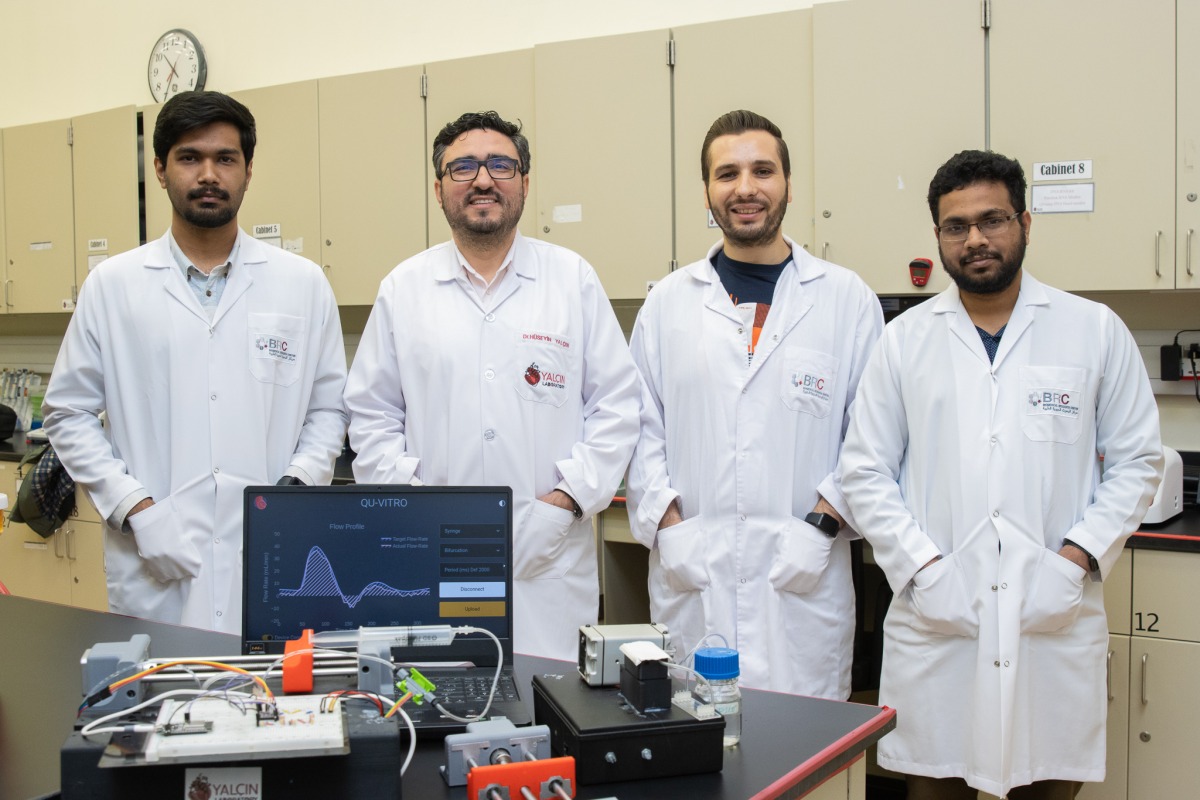Researchers at Qatar University (QU) have developed a groundbreaking programmable pump called QU-Vitro, aimed at advancing cardiovascular investigations. This innovative device is designed to accurately mimic blood flow in the cardiovascular system, enhancing laboratory experiments on cultured cardiac cells. Led by Dr. Huseyin Yalcin, a principal investigator at QU’s Biomedical Research Center, the multidisciplinary team combines expertise from various departments to create this revolutionary solution. Dr. Yalcin’s background in mechanical engineering has enabled him to propose a novel approach to overcome challenges in cardiovascular research, resulting in the development of QU-Vitro.
The project team secured a High Impact Grant to fund the development of QU-Vitro, receiving positive feedback for its potential impact on the field. This programmable pump, with the project title “A Programmable Physiological Cardiovascular Flow Mimicking Pump for In Vitro Perfusion Experiments,” is set to provide a more accurate and practical tool for studying cardiac cells. While specific details of QU-Vitro are confidential at this stage, the project is expected to be completed by the end of 2024. Upon completion, QU-Vitro is poised to revolutionize cardiovascular research by enabling researchers to obtain more reliable and relevant results through closely mimicking native blood flow in experiments.
Dr. Yalcin expressed his enthusiasm for the project, stating that Qatar is making significant strides in producing cutting-edge science and inventions in various fields. He aims to develop a novel, compact, and practical system that will benefit cardiovascular research labs worldwide. Vice President for Health and Medical Sciences at QU, Prof. Asma Al-Thani, emphasized the importance of multidisciplinary research in projects like QU-Vitro. The Biomedical Research Center at QU is at the forefront of innovative projects in the medical and engineering fields, with this invention being a prime example of combining expertise from both disciplines to enhance human health globally.
The development of QU-Vitro represents a significant step forward in cardiovascular research, offering researchers a more accurate and practical tool for studying cardiac cells. This programmable pump will support investigations into cardiovascular diseases, drug testing, and tissue engineering applications by closely mimicking physiological blood flow in laboratory experiments. With completion expected by 2024, QU-Vitro has the potential to transform the way cardiovascular research is conducted, providing researchers with a reliable and relevant system for their experiments.
The project has received funding through a High Impact Grant, showcasing the potential impact of QU-Vitro on the field of cardiovascular research. While specific details of the device remain confidential, the team is making steady progress towards completing the project by the end of 2024. Dr. Yalcin and his team are excited about the potential impact of QU-Vitro on cardiovascular research, aiming to develop a compact and practical system that will benefit research labs worldwide. Vice President Prof. Asma Al-Thani highlighted the importance of multidisciplinary research in enhancing human health, with QU-Vitro serving as a prime example of combining engineering and medicine for innovative solutions.











